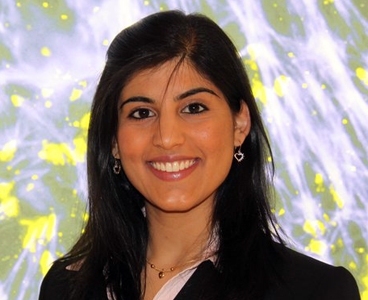Anjali Thakkar, a junior at MIT who plans to pursue a career in global health, advocating for low-income populations, has been awarded a 2011 Harry S. Truman Scholarship.
Thakkar, a biology and materials science and engineering major from California, was one of 60 students nationwide selected as winners of the prestigious $30,000 graduate scholarship. Awarded each year, the scholarships aim to find and recognize college juniors with exceptional leadership potential who are committed to careers in public service
She is actively involved as a camp counselor for Camp Kesem, a student-run summer camp for kids whose parents have or have had cancer; and is a service fellow for MIT's Public Service Center. Thakkar’s research focus has been on liver regenerative medicine.
She is passionate about education reform on health and poverty issues, and received two fellowships to develop and implement a mentorship program, “The Entrepreneurial Spirit,” to teach sustainable micro-finance to low-income students in developing countries. Thakkar has implemented the model in India and the Guanajuato state of Mexico.
While still in high school, Thakkar was awarded an Intel Promising Young Scientist Research Grant as well as a scholarship to attend the California State Summer School for Mathematics and Science, which pairs young students with university researchers to conduct experiments during the summer.
In her letter of recommendation for the scholarship, Kimberly Benard, program advisor for distinguished fellowships at MIT, noted Thakkar’s desire to pursue a medical degree and focus on the study of diabetes, with the eventual goal of working alongside Partners in Health.
“Thakkar is a passionate and empathetic young woman, who is deeply committed to a career in service … she has demonstrated tenacity in the face of overwhelming obstacles, and proven that she can succeed beyond what others have thought to be feasible,” Benard wrote.
Thakkar, a biology and materials science and engineering major from California, was one of 60 students nationwide selected as winners of the prestigious $30,000 graduate scholarship. Awarded each year, the scholarships aim to find and recognize college juniors with exceptional leadership potential who are committed to careers in public service
She is actively involved as a camp counselor for Camp Kesem, a student-run summer camp for kids whose parents have or have had cancer; and is a service fellow for MIT's Public Service Center. Thakkar’s research focus has been on liver regenerative medicine.
She is passionate about education reform on health and poverty issues, and received two fellowships to develop and implement a mentorship program, “The Entrepreneurial Spirit,” to teach sustainable micro-finance to low-income students in developing countries. Thakkar has implemented the model in India and the Guanajuato state of Mexico.
While still in high school, Thakkar was awarded an Intel Promising Young Scientist Research Grant as well as a scholarship to attend the California State Summer School for Mathematics and Science, which pairs young students with university researchers to conduct experiments during the summer.
In her letter of recommendation for the scholarship, Kimberly Benard, program advisor for distinguished fellowships at MIT, noted Thakkar’s desire to pursue a medical degree and focus on the study of diabetes, with the eventual goal of working alongside Partners in Health.
“Thakkar is a passionate and empathetic young woman, who is deeply committed to a career in service … she has demonstrated tenacity in the face of overwhelming obstacles, and proven that she can succeed beyond what others have thought to be feasible,” Benard wrote.






